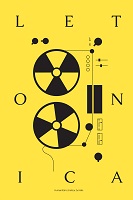Theoretical Approaches and Methodological Challenges in the Study of the Cultural and Creative Ecosystem
Theoretical Approaches and Methodological Challenges in the Study of the Cultural and Creative Ecosystem
Author(s): Anda Laķe, Ilona Kunda, Baiba TjarveSubject(s): Culture and social structure , Social Theory, Health and medicine and law, Political Ecology, Sociology of Culture
Published by: Latvijas Universitātes Literatūras, folkloras un mākslas institūts
Keywords: Ecological approach; cultural and creative sector; analytical models; boundaries; scale; networks;
Summary/Abstract: Analytical reflection and research questions on growth, evolution, and resilience in culture, as well as the inclusive nature of the creative economy and conditions for its sustainability, have prompted researchers from various disciplines to seek answers by means of ecological approaches, especially the concept of the ecosystem. The epistemological value of the ecosystem concept has grown in conjunction with researchers’ attempts to expand and humanize the understanding of societal transformation and conditions of its development, decreasing the role of market and economic values. These ideas are concisely expressed in John Clammer’s definition of “holistic development,” which refers to “forms of development that far exceed the purely economic or material and involve the development of culture, the pursuit of social and cultural justice, concern for the environment as the essential context for the maintenance and flourishing of both human and non-human life forms and ideas of both material and cultural sustainability and the links between all of these” (Clammer 2015). The need to understand the relationship between culture and development is consistently present also within the context of policy-making, especially so in discussing support conditions and contributions for inclusive and sustainable growth. It may be precisely this discourse that has promoted the development of a new, inclusive and at the same time actionable understanding of culture. A possible answer for this call may be the ecological understanding of culture — “one that can embrace the many interconnections and interdependencies involved in processes of valuing, and experiencing value for oneself” (Wilson et al. 2020). The study of the cultural and creative ecosystem often also includes the development of policy recommendations. On various levels of policy-making (local, national, European Union (EU), international), the agenda has contained discussions on the best ways of governing the mutual dependence of this complex adaptive system and on making decisions about the kinds and concrete instances of cultural and artistic manifestations to be promoted, supported, and developed. These issues became as topical as ever during the Covid-19 pandemic, as the social distancing measures had a particular impact on the cultural domain.
Journal: Letonica
- Issue Year: 2022
- Issue No: 46
- Page Range: 14-36
- Page Count: 23
- Language: English

